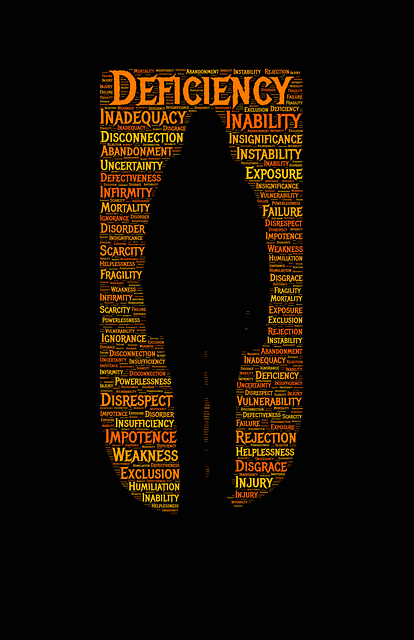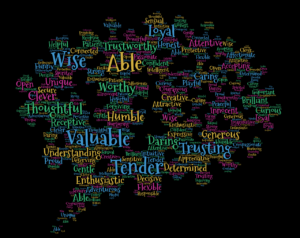How can weakness of a person make you better? How do your weaknesses affect your leadership? These types of questions have given many people anxiety. The consensus seems to be that these are good interview questions. To help you identify possible weaknesses, personality traits A Z are available at the bottom.
Exploring your weaknesses allows you to discover the best approach to answering similar interview questions. According to Pamela Skillings, answering questions about weaknesses is an aggravating question to many. However, it is important to consider how to respond to these types of questions “because the way you answer a question about your weaknesses is very telling. You may not even realize what you are communicating when you answer this question.”
Meanwhile, Laura DeCarlo states that “your ultimate goal is to present a real weakness that does not damage your potential for the position but also does not come across as unrealistic or staged.”
Per Marcus Buckingham, organizations follow a flawed assumption that “each person’s greatest room for growth is in his or her areas of greatest weakness.”
If this is a flawed assumption, why should you find your weaknesses?
Find Your 10 Personal Weaknesses
Knowing your personal strengths in leadership is important. The reason this list of positive qualities is important is that they tend to be your “go to” attributes. These attributes are your differentiators or your competitive advantage.
Likewise, weaknesses are those attributes you shy away from in exchange for your strengths. In fact, when you know and understand your strengths you can compensate by staffing your team with individuals who possess those skills.
When compiling your list of 10 personal weaknesses, understand that everyone has weaknesses. Your weaknesses make you unique and human. Therefore, answer interview questions honestly and straightforward.
A second reason for building a list of weaknesses is for self-development. When you can identify your weaknesses, you can develop a strategic approach to transforming your weaknesses into growth opportunities.
Making an effort to change and build upon your personal weaknesses may alter the quality of your life. You may find that certain tasks become easier for example. You may also discover a new enjoyment projects that you avoided in the past.
That all sound great but how do you identify your weaknesses?
Steps to Identify Your 10 Personal Weaknesses
Compiling a list of weaknesses starts with introspection. There are a variety of questions you can ask yourself to identify these attributes.
- What problems do you experience on a regularly?
- How have you developed as a person?
- What feedback have you received from past supervisors?
- How would you like to implement changes in your life?
- What characteristics of a leader do you admire?
Bonus: Choose qualities from the personality traits A Z list at the bottom.
Use these questions and list to form a list of weakness of a person. Once you identify your list of weaknesses, use them to prepare for your interview. If you are building this list for personal development reasons, start by selecting one quality to strengthen initially. Selecting more than one item will prevent you from making any significant progress that will become noticeable.
Pitfalls of Answering Questions About Weakness of a Person
There are common mistakes when responding to these types of questions. Mistakes in answering these questions fall into five categories.
- Disavow
Accept that everyone has weaknesses and respond honestly. Do not attempt to hide your weaknesses. Hiding your weaknesses makes you appear insincere.
- Strength as a Weakness
Weaknesses are not strengths. You may have a strategic plan to work on personal development. However, you are not going to develop all personal weaknesses at the same time. If you are trying to flip a weakness into a strength, avoid turning all weaknesses into strengths.
- Joking
Interviewers are not interested in jokes. Joking about your personal weaknesses makes you appear insincere. Turning your responses into jokes shows that you are not valuing time with the interviewer. Treat all interview questions in a sincere manner.
- Psychiatric Help
Interviewers are not interested in the cause of your weakness. Questions about weaknesses help interviewers understand you in a different light. Acknowledge that you are self-aware of your shortcomings. Respond by stating your weakness and explain why it does not limit your potential.
- Interrogation
This question is not an interrogation. Focusing and drawing attention to a weakness of a person can be you undoing if you let it. Be sincere and honest but do not dwell on your problems.
Personality Traits A Z
Use this personality traits A Z list in a manner to help build your list of weakness of a person. Rate each attribute from 1 to 5. Rank strengths as a 1. Give your weaknesses a 5. Attributes that are neutral, neither a strength or weakness, should be ranked as a 3. After conducting this activity, examine those attributes that are a 5. Consider how these weaknesses relate and apply to the job.
| Attitude |
| Balance |
| Celebration |
| Clarity |
| Coaching |
| Collaborative |
| Commitment |
| Communication |
| Compassion |
| Competitive |
| Confidence |
| Conflict Management |
| Conflict Resolution |
| Creative |
| Creative |
| Critical Thinking |
| Delegate |
| Disseminating Information |
| Emotional Intelligence |
| Engagement |
| Enthusiastic |
| Entrepreneurial |
| Evaluative |
| Expertise |
| Focus |
| Genuine |
| Giving Feedback |
| Good Judgement |
| Hiring |
| Honesty |
| Humility |
| Humor |
| Influential |
| Innovative |
| Inspirational |
| Integrity |
| Interpersonal |
| Intuition |
| Leveraging Technology |
| Multitasking |
| Negotiating |
| Networking |
| Open Minded |
| Optimism |
| Passion |
| Persuasive |
| Problem Solver |
| Public Speaking |
| Questioning |
| Receiving Feedback |
| Respect |
| Respectful |
| Results Oriented |
| Scheduling |
| Self-Aware |
| Strategic Change |
| Strategic Planning |
| Supportive |
| Taking Risk |
| Team Building |
| Trend Spotter |
| Writing |

